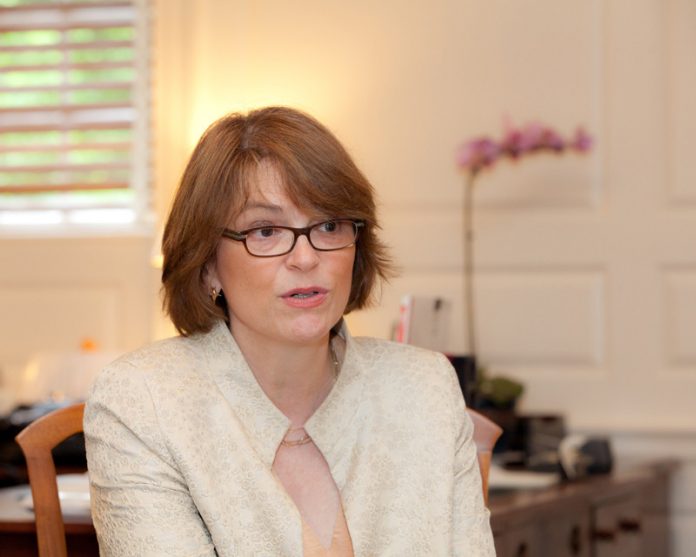PROVIDENCE – Brown University President Christina Paxson says the university is launching an extensive review of its admissions and student-life policies to ensure fairness in the wake of recent reports that some Brown students and prospective students were given – or appeared to have been given – preferential treatment.
In an email Tuesday to students, faculty and staff, Paxson said she has formed a special committee to review the Ivy League school’s admissions process to make sure it “lives up to Brown’s commitment to integrity, access and inclusion.”
At the same time, Paxson said, Brown is reviewing its policies and practices related to alumni and donor relations, residential life and academics “to ensure that students are treated equitably and fairly in the course of their lives on campus.”
Paxson’s announcement comes as a wide-ranging admissions bribery and cheating scandal has led to federal charges against dozens of people and shined a light on the college admissions process nationwide.
Many involved in the scandal are accused of passing off prospective students as star athletes to gain entrance into certain schools. Some are accused of falsifying SAT scores.
Brown University has not been tied to the scandal, and Paxson noted in her email that the university has not been contacted by federal officials in connection with the U.S. Justice Department probe.
After the investigation, dubbed “Operation Varsity Blues,” became public in March, Brown University conducted a review of every recruited varsity athlete who enrolled at Brown over the previous four years. The school “found no concerns,” Paxson said.
But there have been recent reports in the Brown Daily Herald, the student newspaper, that Brown’s advancement office had arranged meetings in the past between faculty members and prospective students, in many cases, from wealthy families.
“Preferential treatment, real or suspected, for students based on wealth or privilege is corrosive to our community,” Paxson said in the email. “We are looking carefully at all our practices across the university – from alumni and parent engagement, to residential life, to academic concerns, to student conduct – to make sure that favoritism has no influence on students’ experiences.”
Paxson said she is forming the Ad Hoc Committee on Equity and Integrity in Admissions to determine if Brown has adequate safeguards to protect the integrity of the admissions process — particularly in the recruitment of athletes, and to ensure that admission practices are designed to build academic excellence while making Brown accessible to students from all economic backgrounds.
The committee will be chaired by Maria Zuber, chairwoman of the Academic Affairs Committee of the Corporation of Brown University, and Provost Richard Locke.
No students will be appointed to the committee, Paxson said, because of privacy and confidentiality concerns surrounding the availability of student information and data. As part of its review, however, the committee will talk with students, staff and alumni, Paxson said.
A report is expected in the fall.
“Although we cannot eradicate all of the effects of living in an unequal world, colleges and universities should not and cannot be places where educational opportunities are shaped by wealth,” Paxson said.












